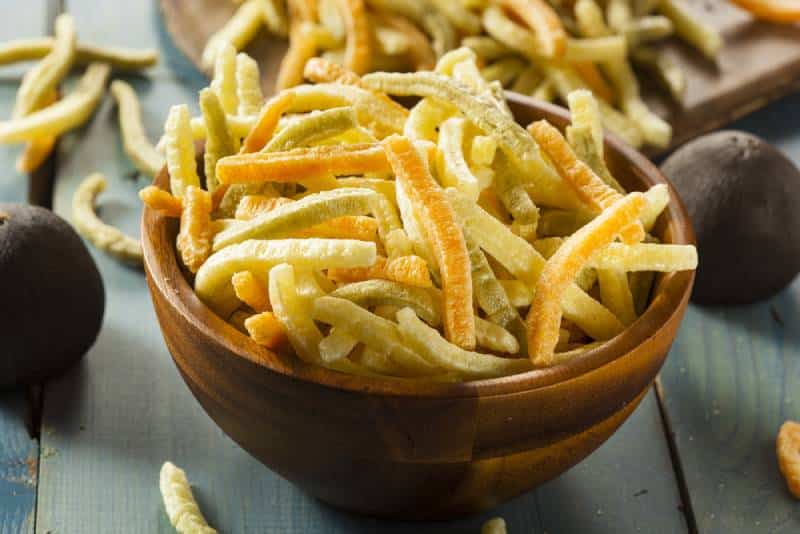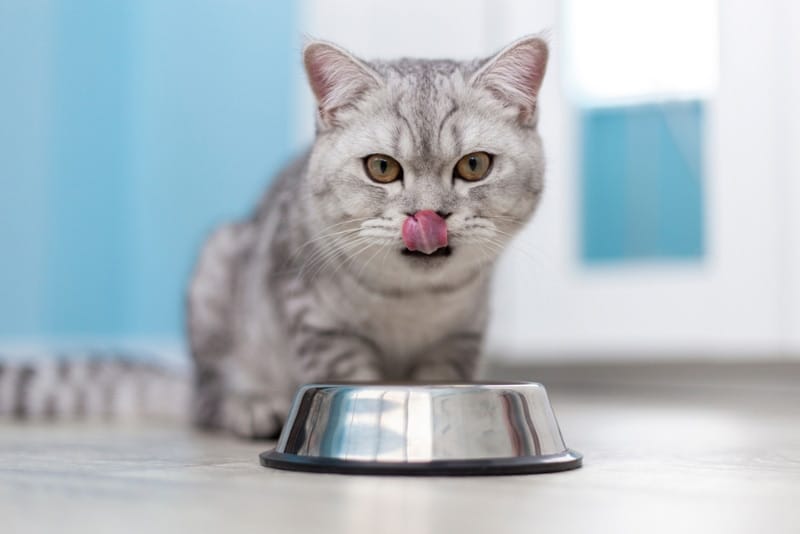One snack hailed as a great treat for humans is the Veggie Straw. It’s claimed that these crispy snacks are an ideal way of upping our vegetable and dietary intake, and who can blame us for wanting to devour healthy veggies in an excellent tasty way? It makes logical sense, if so, that many pet parents would due to this fact need to offer these to their cat as a healthy treat also.
If you happen to are a Veggie Straw fan, you could likely find your cat wanting to munch on these chips too, and end up wondering whether it is protected to share these together with your furry friend. With their incredible sense of smell, cats can easily sniff out something tasty they want to eat, but sadly, and sometimes to their disappointment, Veggie Straws should not option to present to your cat.
What Are Veggie Straws?
Veggie Straws are a style of chip and a widely available snack bought in packets from stores. These are marketed and pushed as a healthy snack or treat for humans as a result of being a fun and engaging technique to add healthy vegetables into our diets, and a lower fat content than the common potato chip. After we have a look at the actual contents of those products, nonetheless, we will rightly assume that these claims are a little bit far-fetched.
Ingredients of “Sea Salt” Veggie Straws
- Potato flour
- Potato starch
- Corn starch
- Tomato paste
- Spinach powder
- Salt
- Sugar
- Beetroot powder
- Turmeric
- Sea salt
- Oil (canola, sunflower, and/or safflower oil)
The ocean salt flavor is probably the most basic flavor containing the fewest ingredients. Other flavors on offer include Sour Cream and Onion, BBQ, Cheese, Zesty Ranch, Screamin’ Hot and Cinnamon Apple. A lot of these other flavors contain onion and garlic powder, each of that are toxic to cats. Additionally they include cheese and milk, which many cats are intolerant to.
As we will see, Veggie Straws are removed from filled with nutrition for our cats, and plenty of flavors also contain toxic ingredients, in order that they mustn’t be treated as a protected snack option to your cat.
If you might have fed your cat a Veggie Straw, check the packet rigorously to make sure there isn’t a onion or garlic within the ingredients. If either of those ingredients are listed, contact your veterinarian immediately for advice.
Image Credit: Brent Hofacker, Shutterstock
Can My Cat Eat Veggie Straws?
Veggie Straws are created from potatoes and are a type of potato chip. The Sea Salt and the Cinnamon Apple flavors contain no toxic ingredients, but they supply little or no dietary value or profit either. The entire other flavors on offer do contain toxic ingredients, so no matter how much your furry friend persists, they need to not be offered to your cat. The milk and cheese contained in lots of the flavors may cause gastro-intestinal upset as many cats are dairy intolerant.
These products are high in sodium (salt), starches, sugar, and oils. Additionally they are inclined to be higher in fat and calories than many other feline-safe treats. Importantly, they contain lower than 1g of protein per 28g serving, and cats require a protein-rich eating regimen. All in all, the balance of nutrition in Veggie Straws is way from ideal for a cat and may cause problems to your cat’s weight and mobility if fed frequently over an extended time period.
It’s perfectly advantageous and acceptable to want to present your cat a treat. This nice act helps to extend the bond between the 2 of you, so it’s an ideal thing to do so long as you select a protected food. Nonetheless, there are much better, non-toxic and healthier food options to select from than Veggie Straws, and given the alternative of each ready-made feline treats plus the many options of protected human food, there isn’t a need to present Veggie Straws to your cat. Select another as an alternative!
What Treats Can I Feed As a substitute of Veggie Straws?
There are a lot of store-bought products in the marketplace to present your cat as a treat, in addition to loads of human food that’s each protected and healthy. Try a range from the list below, although not unexpectedly! Avoid any that your cat is allergic or intolerant to. Do not forget that treats to your cat should only make up around 10% of their day by day calorie intake.
All the time check together with your veterinarian that the food you would like to supply is protected to your cat and their individual health status.
Protected Cat Treats
- Treats bought from stores, marketed for cats
- Plain grilled or cooked chicken
- Plain cooked turkey
- Cooked fish, especially salmon or oily fish
- Canned tuna in water
- Eggs
- Bananas
- Blueberries
What Is a Healthy Weight loss plan for Cats?
Image Credit: TarasBeletskiy, Shutterstock
Cats are often called obligate carnivores. This implies they need to get their protein from animal meat, quite than plant sources. They’ve a number of extra dietary requirements when put next to dogs, humans, and other species, that are:
- Taurine – A selected style of essential amino acid found only in protein from animal meat.
- Arachidonic Acid – A vital fatty acid derived from animal origin.
- Arginine – A vital amino acid derived from animal meat.
- Vitamins A, D and Niacin – Cats can’t sufficiently synthesize these vitamins in order that they must get them from animal tissues.
For that reason, cats must eat animal meat and can’t be fed a vegetarian or vegan eating regimen. Nor can these extra mandatory nutrients be added as a complement. Failure to supply your cat with taurine, arginine and arachidonic acid leads to serious health issues, potentially resulting in their death.
Cats also require a much lower level of carbohydrates than humans and dogs and derive most of their energy from proteins and fats.
Their specific dietary requirements mean cats ought to be fed high-quality, age appropriate complete cat food to make sure they get all of the nutrition they should live long, healthy lives.
Conclusion
There are many protected foods that cats can eat as an additional snack or treat on top of their day by day eating regimen. While the variety of snacks offered must be limited, many tasty foods can still be enjoyed by your cat while still providing quality, protected and healthy options to them. Veggie Straws should not a protected or nutritious treat alternative, so ought to be avoided.
If you might have already been feeding your cat Veggie Straws and are concerned in regards to the effects on their health, then have a chat together with your veterinarian or veterinary nutritionist who can best advise on the subsequent steps.
Featured Image Credit: Le Do, Shutterstock





